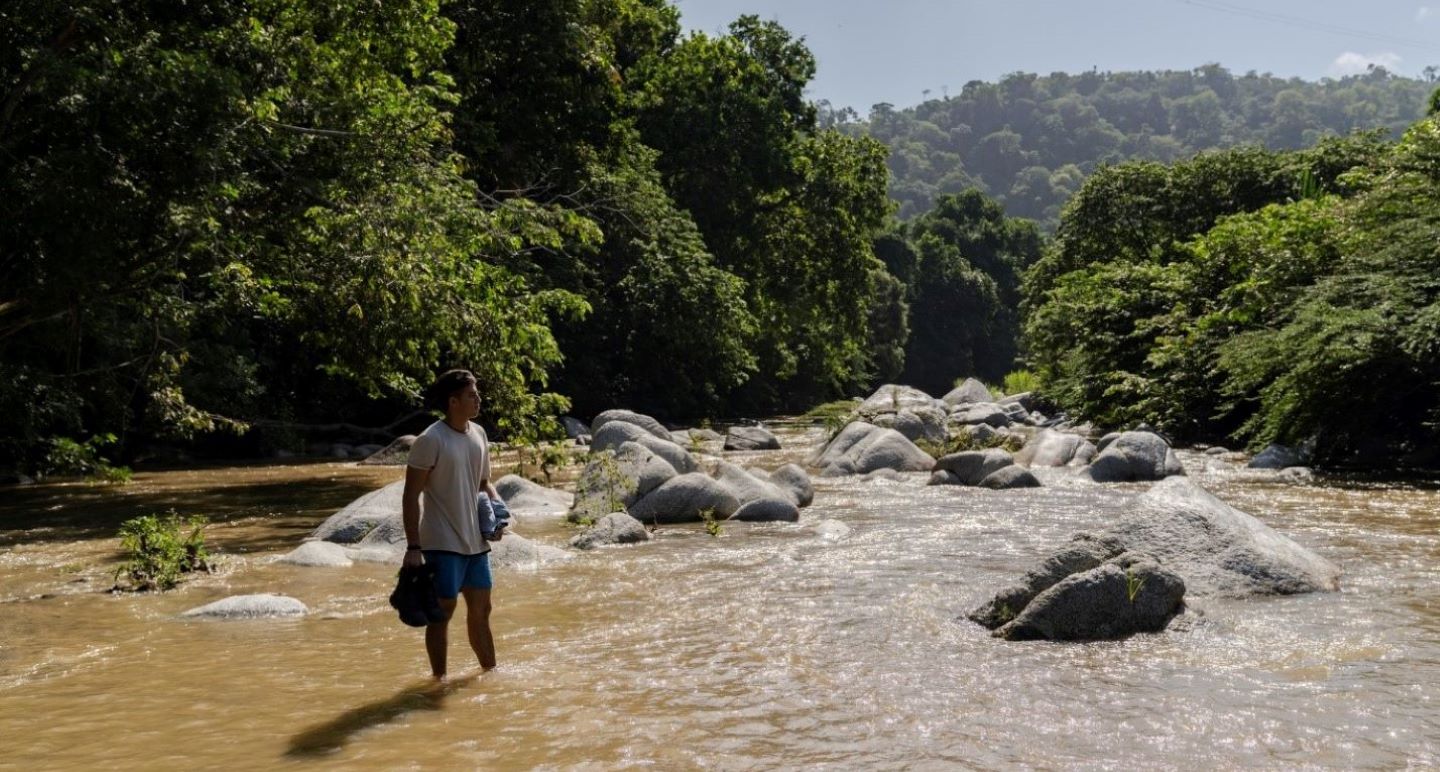See how water and peace go hand in hand
IFAD Asset Request Portlet
Asset Publisher
See how water and peace go hand in hand
Estimated reading time: 3 minutes
Our planet's most precious resource – water – is increasingly scarce. At the same time, conflicts are on the rise globally. It's no coincidence.
In fact, peace and water are inextricably intertwined. Without water there can be no peace. And without peace, there can be no equitable, sustainable use of water by all those who need it. As the world’s climate changes, this connection will become ever more prominent.
Sustainable rural development can help reduce conflict in communities. And in many parts of the world, water is the crucial element that can make the difference between peace and prosperity on one hand, and deprivation and conflict on the other.
Water brings peace in Mongolia
Southern Mongolia has always been arid, but climate change is making matters worse. Droughts have become more intense, while livestock-killing winter freezes known as dzud, which used to occur once a decade, now strike almost every year. Increasingly, these are accompanied by reduced snowfall, further impacting water supply.
More and more frequently, Mongolia’s traditional pastoralists are forced to look for water beyond their own land, straining the social relationships they depend on.
“Because of the limited water supply, there are conflicts amongst herders when people from another territory migrate to theirs,” says 45-year-old sheep farmer Battsetseg Baldangombo.
But things are changing thanks to the IFAD-supported Project for Market and Pasture Management Development, which is ensuring water for all by investing in deep wells. These have increased access to water across six provinces, benefiting more than 2,500 pastoralist households.
With less competition for water, conflict is easing too – and the project is reinforcing this shift by developing pasture management plans, which ensure it is used equitably.
©IFAD/Lotus Media
Water comes with peace in Colombia
Two decades ago, Johny Serrano’s parents found themselves stumbling into an unknown future amid Colombia's internal armed conflict. Fighting had reached their home, and the family was forced to flee with nothing but the clothes on their backs.
As part of Colombia’s peace process, they were finally given a new home. As 22-year-old Johny wades through the sun-dappled Piedra river, he knows that its green shores are safe for his family’s cacao farm.
Yet they are now confronting a new enemy: climate change. “In the last 10 years, the weather has changed in astonishing ways,” says Johny. “Temperatures are rising and rain doesn’t fall that often.”
With advice from the IFAD-funded PUENTES programme, Johny and his family established a climate-resilient irrigation system. The cacao trees are flourishing despite the changing weather patterns – and they are grown alongside diverse plants that create a microclimate, keeping temperatures down.
And that's not all. As tourists arrive to the Piedra river, Johny has used his training from PUENTES to start a new business: a chocolate tour allowing visitors to enjoy the fruits of peace in San Rafael.
Building a peaceful, water-secure future
These stories from Colombia and Mongolia are far from unique – around the world, IFAD has seen time and time again the close relationship between water and peace.
Like in eastern India, where the village of Parsali was once served only by a contaminated well that brought disease and stoked simmering tensions. Here, two solar-powered boreholes dug with IFAD's support brought clean, sustainable water to everyone in the village, easing conflict.
Or in southwestern Tajikistan, where years of civil war led to many irrigation channels falling into disrepair. Without drainage, the shallow, salty groundwater damaged the soil, forcing many farmers to abandon their fields. But now that the conflict has passed, small-scale farmers are restoring the channels using IFAD-provided excavators and bringing the land back to life.
There's no shortage of evidence that water and peace go together. That's why IFAD supports rural people in accessing water, managing it equitably and using it sustainably – and creating the conditions for a peaceful, prosperous future.
Read more about IFAD's work on water.
Publication date: 21 March 2024